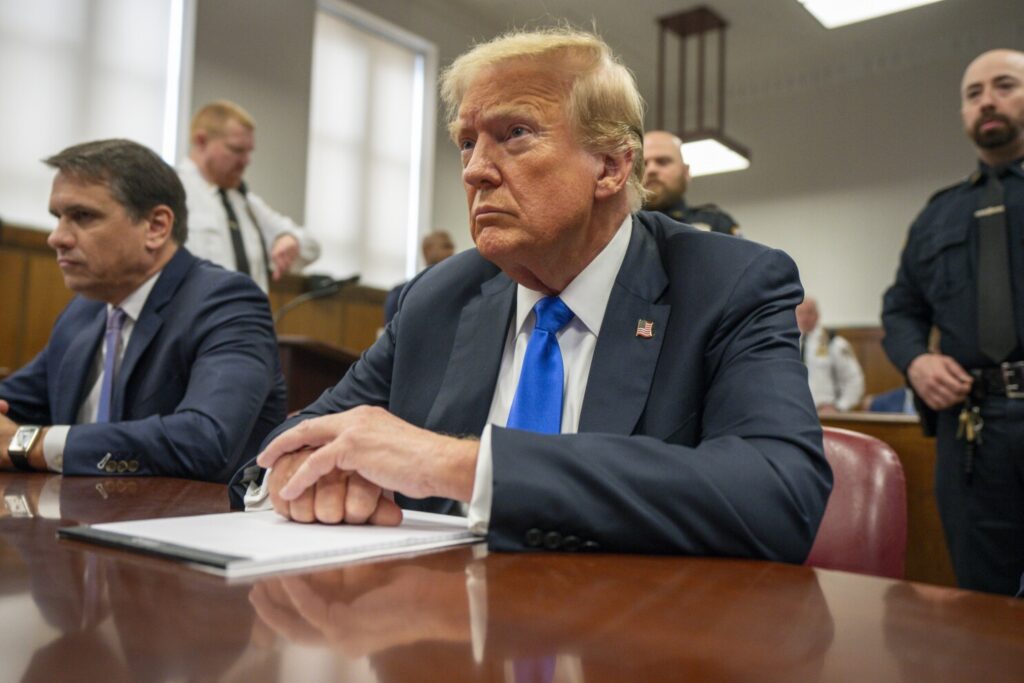The European Union (EU) has disclosed that it plans countermeasures in response to new tariffs imposed by U.S. President Donald Trump but remains open to negotiations.
This was disclosed on Thursday by the European Commission President, Ursula von der Leyen.
While reacting on the sidelines of a summit with Central Asian leaders in Uzbekistan, she described Trump’s move a “major blow to businesses and consumers worldwide,’’ adding that Europe was ready to respond and protect its interests.
According to her, the tariffs will lead to millions of citizens facing higher grocery, medication, and transportation costs, while inflation would rise and hurt the most vulnerable citizens.
Meanwhile, von der Leyen said the EU is already concluding its first package of retaliatory measures and is now preparing additional steps to protect its businesses if talks with the U.S. fail.
Von der Leyen urged EU citizens not to lose faith, reassuring them that Europe was equipped to weather the storm.
She had also announced talks with the automotive and pharmaceutical sectors, hit hardest by the tariffs.
Trump on Wednesday announced new blanket tariffs of 10 per cent on most imports to the U.S., with higher penalties based on trade deficits for many countries.
According to Trump, imports from the EU will face new tariffs of 20 per cent.
“For decades, our country has been looted, pillaged, raped and plundered by nations near and far, both friend and foe alike,” Trump said in the White House Rose Garden.
“Now we’re going to charge the European Union. They’re very tough. Very, very tough traders. You know, you think of the European Union, as very friendly. They rip us off. It’s so sad to see. It’s so pathetic,” Trump said.
“We are going to charge them 20 per cent,” the U.S. president said.
New Daily Prime earlier reported that global leaders had expressed their concerns about the tariffs.
Australian Prime Minister Anthony Albanese said his country would not retaliate with reciprocal tariffs, calling Trump’s decision “unjustified” and harmful to U.S. citizens themselves. “We will not join a race to the bottom that leads to higher prices and slower growth,” he said.
In Europe, leaders expressed dismay over what they see as a damaging and unnecessary escalation. Spanish Prime Minister Pedro Sánchez reaffirmed his country’s commitment to global trade, saying, “Spain will protect its companies and workers and will continue to be committed to an open world.”
Sweden’s Prime Minister echoed the sentiment, warning, “We don’t want a trade war. We want to find our way back to a path of trade and cooperation with the U.S.”
Irish Trade Minister Simon Harris urged dialogue, stating that both Ireland and the European Union remained “ready to find a negotiated solution.”
Italy’s Prime Minister Giorgia Meloni was more direct, warning that a prolonged trade conflict would “inevitably weaken the West in favour of other global players,” a subtle reference to China and Russia, which may seek to exploit divisions among Western allies.
From Brussels, Manfred Weber, President of the European People’s Party (EPP), issued a scathing rebuke, saying, “Donald Trump’s tariffs don’t defend fair trade; they attack it out of fear. Today isn’t liberation day—it’s resentment day.”
Trump’s announcement comes at a time of rising global economic uncertainty and shifting geopolitical alliances. Analysts warn that broad-based tariffs could disrupt global markets, push up prices, and dampen economic recovery efforts in post-pandemic economies.
Trade experts note that, unlike previous targeted sanctions or tariffs on steel and aluminium, this blanket 10% tariff—framed as “reciprocal”—could have far-reaching consequences, including higher costs for American consumers and retaliatory action from key trading partners.
The European Union is reportedly preparing to review its response, including the possibility of countermeasures if the tariffs are enacted in full.
Despite the criticism, Trump remains defiant, arguing that the tariffs are a matter of economic sovereignty. “Other countries have taken advantage of us for too long. That ends now,” he told reporters.
As the world watches how this unfolds, one thing is clear: the next phase of Trump’s trade agenda is likely to reshape not just American policy, but global commerce itself.



